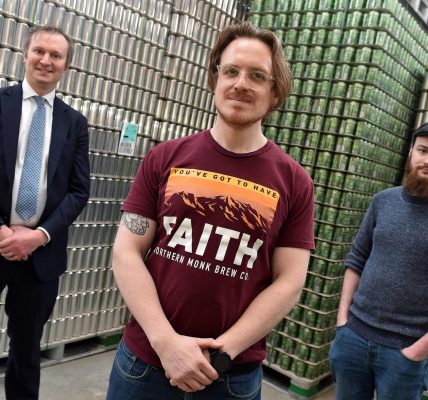Sainsbury's benefits from its essential retailer position in the year of Covid
Supermarket Sainsbury’s enjoyed a strong boost in sales thanks to its position as an essential retailer during the year of Covid.
Sales in the year to March 6 jumped 7.8 per cent, including an 8.3 per cent rise in non-food business as shoppers were unable to head to non-essential retailers for large parts of the year.
But £485m in Covid-related costs and a major restructuring that saw around 1,150 jobs affected, sent the business to a £261m loss for the year.
Sainsbury’s grocery sales were up 7.8 per cent, helped along by a soaring 120 per cent rise in online orders.
At the company’s Argos business, sales jumped 10.9 per cent, including a 68 per cent rise in digital sales.
But less travelling meant Sainsbury’s fuel sales slumped 45 per cent contributing to overall revenues hitting £29bn in the year to March 5, up 0.2 per cent on a year earlier.
Like much of the high street, and despite remaining open throughout the year, clothing sales dropped 8.5 per cent including a 26.7 per cent plunge in the three months between March and May 2020.
Bosses said clothes sales are starting to recover, however, with a 4.2 per cent rise in sales in the past three months.
Chief executive Simon Roberts also revealed that despite the high Covid-19 costs, the supermarket will still pay out a dividend to shareholders of 7.4p a share, up from 7.3p a share a year ago.
He said: “This year’s financial results have been heavily influenced by the pandemic.
“Food and Argos sales are significantly higher, but the cost of keeping colleagues and customers safe during the pandemic has been high.
“Our full-year direct Covid-19 costs were £485m, leading to a 39 per cent decrease in full-year underlying profit.
“We are pleased to propose a full-year dividend which is in line with last year, protecting shareholder income from the full impact of Covid-19 on profits.”
David Kimberley, analyst at Freetrade, said: WThe UK’s second favourite supermarket chain is still sitting on a hefty debt pile and many of its operations, including Argos stores and its banking division, were bloated and weighing down profits long before ‘covid’ became part of our lexicon.
“So investors were probably pleased when CEO Simon Roberts promised a shake-up to the group in November. Job cuts and store closures may not make for great PR but they were necessary given the tight margins the business was operating with.
“That progress is being made here will be a positive for investors. It’s still early days but the cuts at Argos and increasing number of digital sales the retailer is making show that part of the group is on the right track.”










